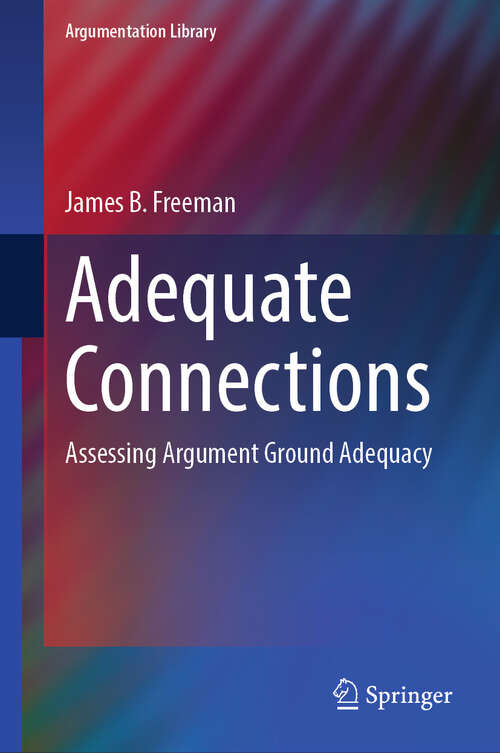Adequate Connections: Assessing Argument Ground Adequacy (Argumentation Library #38)
By:
Sign Up Now!
Already a Member? Log In
You must be logged into Bookshare to access this title.
Learn about membership options,
or view our freely available titles.
- Synopsis
- This book presents a comprehensive picture of when the premises of an argument are adequately connected to its conclusion. The author draws upon the familiar Toulmin model, Rescher’s discussion of presumption and burden of proof, and L. Jonathan Cohen’s presentation of the method of relevant variables. The book first assesses the warrant or inference rule connecting the premises to the conclusion. To analyzes this, the author asks a series of questions such as - should the warrant be evaluated by conclusive or defeasible standards? Does the argument require that its premises, if acceptable, guarantee that the conclusion is acceptable also or does it allow the premises just to present a body of relevant evidence? Is the inference rule backed or supported a priori or a posteriori? These distinctions form four categories of warrants: conclusive a priori, defeasible a posteriori, defeasible a priori, and virtually conclusive a posteriori. The warrants in each category are evaluated differently for how strongly the premises support the conclusion of arguments instancing those warrants. After presenting the rationale for this division and discussing our nonprobabilistic approach, the author analyzes the connection adequacy for each of these types of warrants. This book is of interest to scholars of argumentation theory.
- Copyright:
- 2025
Book Details
- Book Quality:
- Publisher Quality
- ISBN-13:
- 9783031764776
- Related ISBNs:
- 9783031764769
- Publisher:
- Springer Nature Switzerland
- Date of Addition:
- 04/26/25
- Copyrighted By:
- The Editor
- Adult content:
- No
- Language:
- English
- Has Image Descriptions:
- No
- Categories:
- Nonfiction, Philosophy
- Submitted By:
- Bookshare Staff
- Usage Restrictions:
- This is a copyrighted book.
